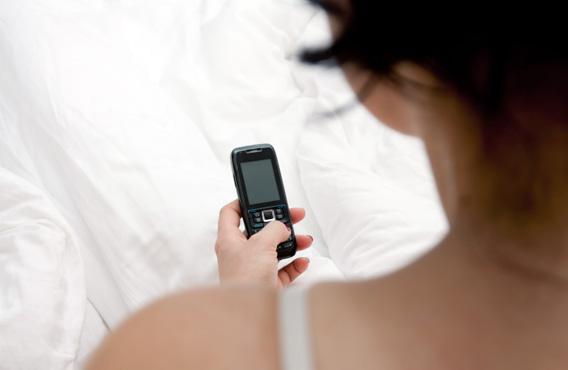This month, New York magazine convened a panel of pickup artists and dating coaches to discuss the state of seduction. “Technology has changed, but the difference between men and women and the dating philosophy does not change,” The Rules co-author Sherrie Schneider said. “There’s a very strong disconnect between men and women,” added self-described “romance artist” Zan Perrion. “We’re all hyper-connected online and yet we’re fundamentally disconnected.”
That gender essentialism may help sell books on how to decipher the behaviors of the “opposite” sex, but this is 2013—nobody buys books anymore. Smartphone-enabled daters across the country are busy interpreting their own texts and coming to alternate conclusions about romantic connections between men and women. A new study commissioned by online dating sites JDate and ChristianMingle surveyed 1,500 single men and women across America about their romantic behaviors and expectations in the age of the smartphone and found few gender differences in how men and women approach dating. (The study isn’t explicitly hetero-only, but most questions are framed in those terms.)
Among the findings: About a third of single people think “it’s less intimidating” to ask someone out via text message. (No gender difference.) Forty-six percent of singles get annoyed by a dating prospect who texts too frequently. (No gender difference.) Seventy-eight percent of singles expect to communicate within 24 hours after a good first date. (No gender difference.) Men and women are about as likely to prefer a call after a good date, to break off a casual relationship via text, and to have checked their phones during sex. A slight rift emerges in the crucial issue of who should text first after a date: Men are a little more likely to say the woman should text first, while women are more likely to say the man should text first. But the majority of men and women surveyed are in agreement: It doesn’t matter who texts first.
Unfortunately, the lack of gender differences hasn’t led to any consensus on how single people ought to pursue one another via QWERTY keyboard. There may be few discrepancies in how men and women approach dating, but there are huge disagreements among people on these issues. According to the study, the majority of single men and women are also in agreement that “texting has made dating more ambiguous.” The old courtship model—where the man pursues until the woman fends him off or acquiesces—is dead (and good riddance), but a new romantic script has failed to emerge.
Consider the text initiation issue. Under the gender-essentialist model, the man would text a woman; the woman would field the advance, and the man would keep texting until she either agreed to a date or blocked his number with the phone company. That script pits men and women against the other based on perceived gender differences. Now that those stereotypes have crumbled, the new model pits men and women against each other based on mutual lack of information. Imagine that a woman meets a man she likes very much. If she texts him first, and he likes her back, they’ll see each other again! But if she texts him first, and he doesn’t like her, she risks personal and social embarrassment for shooting off that unreturned “heyyy.” So she doesn’t text him, and instead she waits until he texts her (at his own personal risk), and they go out again! Or she doesn’t text him, and he doesn’t text her, and they never figure out if they hated each other or if they were both just bluffing. They die alone, separately.
The study did isolate some characteristics, beyond gender that could point to a person’s compatibility with another texter. IPhone users are more likely to ask out a person via text than Android users. Android users are a little more likely to view the who-texts-first issue as gender-neutral, and they’re also more comfortable with significant others looking through their phones. The study also unearthed some regional differences in texting behavior: People in the Northeast tap their phones harder than people in the West do. Northeasterners are more likely to use their phones in bars, bathrooms, and subways; they text people they’re dating more frequently; and they’re more likely to answer a call or text that arrives in the middle of a date. Northeasterners are also more likely to scroll through a significant other’s text messages and call history without permission than Westerners are. (Some people deserve to die alone.)
But when it comes down to it, dating preferences aren’t demographic—they’re personal. In a romantic landscape where we can no longer rely on gender stereotypes to dictate our behavior, every dater is going to have to step up and be a little braver, kinder, and more honest in order to get what he or she wants. Technology may have made dating more ambiguous, but it just might end up making it better.
